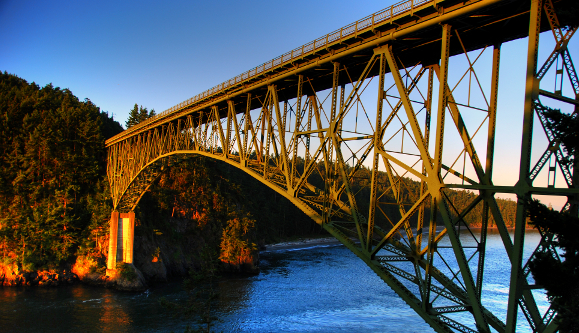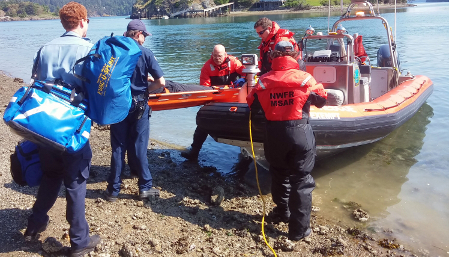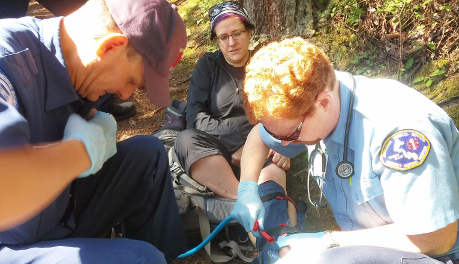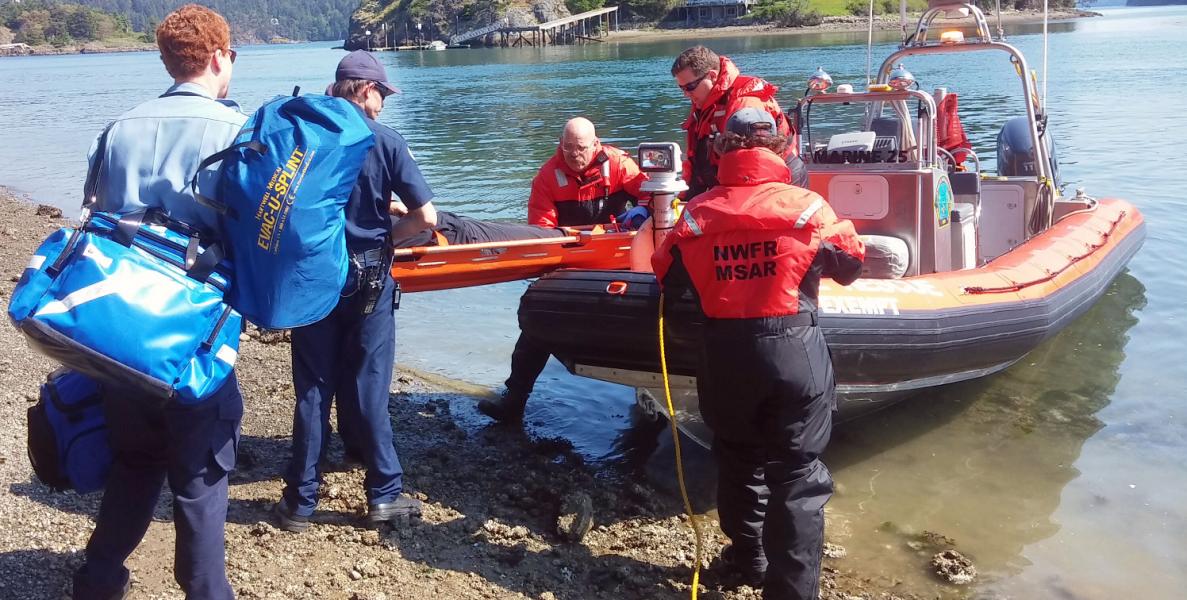I was raised in Eastern Washington on a rural homestead by a botanist mother and a wildlife biologist father. Needless to say, I spent a lot of time outside as a child. On walks I learned the Latin names of wildflowers, and I played outside every day after the hour-long school bus ride. Since moving to the Puget Sound, I’ve hiked, snow-shoed, and backpacked around the West Side to get away from the busyness of city life.
To celebrate the end of our state’s regular legislative session, I recently took a beautiful, sunny Friday off work to visit Deception Pass State Park. While I’m an experienced hiker, I took many precautions: I left my itinerary with a friend, carried a first aid kit and other supplies, and picked a heavily-used trail.

Unfortunately, for the first time in four years and more than 500 miles hiked in the Puget Sound, something went wrong. On an unmemorable, moderate downhill stretch of trail, I slipped on a tree root, fell, and broke my leg. There I lay in the dirt, one very long mile from the trailhead. I was in pain, but mostly in shock that I managed to injure myself on a rare solo hike. Thankfully, some of my precautions paid off - an older couple hiking came upon me within minutes, and set off to get help.
As I lay by the trail, trying not to move any more than necessary and unsure of what would happen next, I had some time to consider my situation. As an independent, able-bodied adult, I have rarely had my life directly dictated by public investments. Sure, I am a dedicated transit rider and a loyal supporter of levies for schools, fire districts, libraries, and more. But at this point, I was in unknown territory, dependent on someone else to rescue me.
In not too long, a Washington State Parks ranger found me and quickly assessed the situation, checked on my status, and started planning how to get me off the trail and to the nearest hospital. Other public safety professionals from North Whidbey Fire and Rescue and Whidbey General Hospital quickly followed. They stabilized my leg and strapped me into a basket to be carried down the trail, transferred me to a boat and then to an ambulance, and sent me on my way up to Anacortes. As I was lying immobilized in a basket, swaying back and forth to the synchronized steps of this highly-trained team, all I could think was, “taxes are amazing.”

It’s true. I unexpectedly found myself alone on a trail with limited mobility and spotty cell phone service. Despite my most stubborn efforts, I realized I was in no position to assess the best route to safety and independently arrange for my rescue. I didn’t even know if my leg was truly broken or just badly sprained.
Luckily, I didn’t need to. Nearly a dozen highly-skilled public employees quickly arrived to help me to safety. No credit checks, no pre-service confirmation of ability to pay, no proof that I wasn’t a libertarian who didn’t believe in taxes – just getting me off the trail and into a cast to speed me on my recovery. Their only concern was for my health and safety.

As my friends can attest, no one could be more mortified than me to require a full team of first responders to escape the clutches of this glorified bunny hill on a sunny, clear day. However, it was deeply reassuring to watch public servants from several different agencies quickly and efficiently leap into action in my moment of need. It was also a stark reminder of the value of public services we all support through taxes. My rescue wasn’t profitable, but it’s exactly the kind of valuable service our government provides for each and every one of us every single day.
Despite the incredible response I benefitted from Deception Pass, not all is well in our state parks system. Years of slashed budgets due to the great recession have left our parks with a maintenance backlog. We’ve already lost the equivalent of 200 staff positions – that’s more than one out of every three state park employees. Even worse, this year’s Senate Republican budget would cut an additional 20 percent from our parks. That would mean more deferred maintenance, further deteriorating park conditions, and additional cuts to staff – like the ranger who found me. Deception Pass State Park, where I fell, sees more 2 million visitors every year – and that’s just one of the more than 130 state parks our state maintains, from Steptoe Butte to Gingko Petrified Forest to Bridle Trails. Our parks and related industries support nearly 200,000 jobs and generate $21.6 billion annually in economic activity. My experience was a painful reminder of the importance of fully funding our state parks and the highly-trained professionals who put together interpretive programs, maintain trails and facilities, and yes, help injured visitors like me.
If you share my support for these essential services, call your Senator right now and ask them to pass the House budget that respects our public servants, funds parks, and helps build a better future for all of us: 1-855-692-5053.

